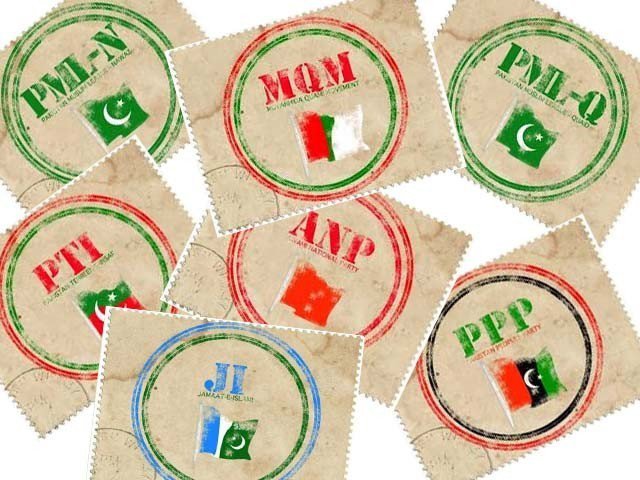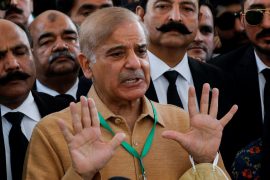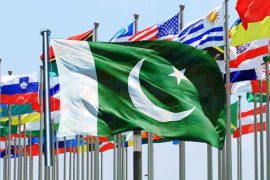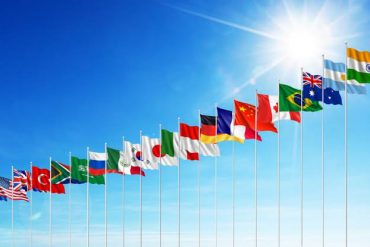STRAIGHT TALK by Hafeez Khan
While chatting with a friend deeply entrenched in media a very interesting point came up. Whenever high performing kids are interviewed about their future plans they opt for professions like medicine, engineering, law, business or becoming a pilot. No one wants to be a politician! Why so? Because politicians are neither trusted nor respected. Over the years it has become the most lucrative profession where fortunes are made overnight but it is the sleaze factor that turns honest folks away.
These young minds are pure, their moral compass un-tempered and value system is intact. They seek career paths that bring respect and are lucrative too. This is not the case in developed democracies. In Canada, many young students choose politics as a career and work their way up through the system. Success is based on efforts, commitment and performance. The compensation is adequate and the bright ones see meteoric rise. It is not about how much family money they bring to the table, rather it how much money they can raise based on their credibility and dedication.
In Pakistan the clock rotates anti-clockwise, big money is a pre-requisite. It makes an interesting case study. I have dabbled in politics for the last five decades starting from early student life. We raised slogans against Ayub Khan and in favor of Fatima Jinnah in Government College Lyallpur. Moved onto Punjab University, Lahore and was catapulted into mainstream politics via the Students Union. The early seventies were interesting times. Z.A. Bhutto had decimated the opposition in what remained as Pakistan.
The combined opposition had only a few numbers in the Parliament yet they represented all those opposed to PPP’s politics. Javed Hashmi, Sheikh Rashid and I represented the popular sentiment amongst the educated youth. We were welcomed by opposition giving them a fresh transfusion of energy. They gave us a seat at the table. I had an opportunity to interact with senior politicians from varying backgrounds. I got to understand how they operated, what triggered them and kept them going.
Bhutto had inducted a whole new generation of politicians in Punjab, KP and Baluchistan. In Sind he relied on the landed aristocracy. The Combined Opposition represented the first generation of Pakistanis. Most belonged to the landed class inducted into politics through birth with roots in Muslim League. A few were from Indian Congress re-incarnated into different entities after Independence. In the seventies very few urbanites had gained national prominence except some from Karachi representing religious parties.
All military dictators had poached into Muslim League to create their political base. It started with Ayub Khan who carved out Conventional Muslim League from the mother organization. It mainly comprised of rural elite willing to submit to a dictator to maintain their stranglehold on local politics. A few of them benefited from Ayub Khan’s permits and licenses for financial gains like textile mills etc. By and large they were naïve and ill informed about the machinations of the business world. Many prided themselves in turning down lucrative offers not to lose their reputation.
All this changed drastically in the early eighties after Zia Ul Haq seized power. Zia came from a middle class background who had donned military uniform to move up in life. He was very savvy with skills of a master political operator. He plotted his path to retain power like a wizard. He realized early on that he will face resistance from the landed elite and decided to break their grip on the power structure. He enlisted the support of religious elements and inducted urbanites with a business background. Punjab is the nerve centre of politics in Pakistan. It saw the house of Sharifs emerge that wrestled the levers of power away from the feudals with the support of military regime.
A business elite emerged very quickly bowing to their uniformed masters at the same time enriching themselves through financial grab. A senior politician beautifully summarized their operating principals in Punjabi; “Ake na, thaki na, jhake na tey chadi na.” Translates “don’t get fed up or tired, don’t be shy and grab whatever you can.” That set the tone for predators on the Pakistani political landscape. In the nineties the virus spread very quickly to all sides of political divide. Zardari and Benazir’s team convinced Bibi that they needed to fast track their money grab schemes if they were to compete with Sharifs and embarked on them wholeheartedly.
The new millennium had President Musharif in power. He carved his support from both sides of political divide plus some fresh faces. After a few years of talking accountability he compromised adding another layer of political predators. This predator network expanded quickly to include bureaucrats, businessmen, bankers and creating pockets of influence within judiciary and uniforms. A formidable combination with a stranglehold on all walks of life.
Prime Minister Imran Khan has devoted his entire political career to eradicate corruption and bring accountability to the omnipotent predators. He continues to soldier on but the 2018 coterie he assembled included many predators, old wine in new bottles. Despite being in power for three years, he is still struggling to bring these predators with octopus tentacles into the accountability process. He is attempting to climb a steep slope with few lifelines. One wishes him well but I believe the Parliamentary system is not the answer. The system needs a complete overhaul to tame the 300 hundred plus families that control the lives of 220 million. Presidential system maybe the only answer.




